History of the Sacrament of Reconciliation in the Church
Jesus educated and lived by the message of reconciliation in his parables and in his healings, as we see this through bible stories. We as Christians believe that the life of a Christian is one of reconciliation and with our self, others and God. The Catholic church, from the earliest times, has had a deep understanding and believed profoundly in the mercy and forgiveness of God. The Sacrament of Reconciliation and Penance, through the power of the Holy Spirit, has been used as an opportunity to reconcile with their selves, God and the community. Below is information about how Reconciliation was celebrated in the Early Church and how it has developed.
The Sacrament in the First and Second Centuries:
In these early centuries, it was believed that baptism was to the sign of the converted person’s new life in Christ which involved the forgiveness of sin. It was understood that baptised people gained forgiveness through taking the Eucharist and participating in prayer, fasting and almsgiving. When confessing sins, they were said directly to God. For mortal or serious sin, the Church began a process of community penance.
They believed that forgiveness could only be received once in a life time, but a person had fallen into a very deadly sin again, they would be unable to receive the Sacraments of Reconciliation, Eucharist and Anointing. However, the Christian community would pray for the person at death.
The Sacrament in the Third to Fifth Centuries:
In these centuries a formal ritual for forgiveness of sin was gradually developed. This was a public ritual , which was celebrated a s a community, and presided by a bishop, in which the person in need of forgiveness was received into the order of penitents. The sinner would have to start fasting, prayer and works of charity in the community as a procedure of penance and conversion. The bishop, would then bring them back into the community, on behalf of the community in a liturgy which was usually celebrated just prior to Easter.
The ceremony of forgiveness was kept as side for major sins in the community, and forgiveness could be taken out of action for a period of time between three to fifteen years. Sometimes the sins were known to the whole community, and overtime the penitent would sometimes confide their sins to a bishop or priest.
The Sacrament in the Sixth to Ninth Centuries:
In England and Ireland, the practice of looking for private spiritual help from monks became popular in these countries. As this spiritual help became more common, it led to a private ritual of Reconciliation which was then frequently used in the Church . In the late sixth century, when monks from England and Ireland came to Europe, the practice of private reconciliation became typical. After this happening, public penance then shifted to the practice of private confession. This took over that once-in-a-life-time public ritual that used to be commonly practiced. Only in some Eastern Churches have public forms of confession followed by private confession.
The Sacrament in the Twelfth and Thirteenth Centuries:
In the twelfth and thirteenth centuries, procedure for reconciliation in the Church was made. This consisted of:
- Confession: this is when the person tells his/her sin to the priest, which represents Jesus in the Church
- Contrition: this is when the person is genuinely sorry for his/her sin and expresses this sorrow.
- Absolution: this is when the priest then offers forgiveness on behalf of God and the Church.
- Satisfaction: under the direction of the priest the person does something to apologize for the damage they have caused by his/her sin. This also can be referred to as a “penance”.

Sixteenth Century
At the Council of Trent, it was said Confession or Penance was now a sacrament of the church. This declaration confirmed the practice that was already in place. The church then suggested that Catholics now had to use this sacrament at least once a year.
Twentieth Century
The Second Vatican council suggested that they call for the revision of the Sacrament of Penance. So in 1973 the revised Sacrament was publicized, which also promoted the three rites in which may be celebrated today. After this, there was a new emphasis on God’s love and mercy and the opportunity of the Sacrament offered for reconciliation. After this the importance of the community dimension was strained. Catholics were then encouraged to also have community celebrations of reconciliation as well as an individual celebration and acknowledgement of sin.






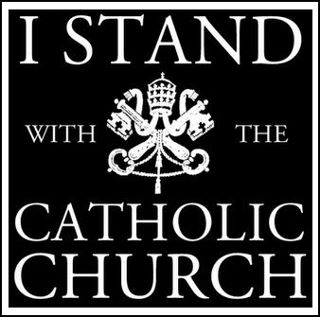














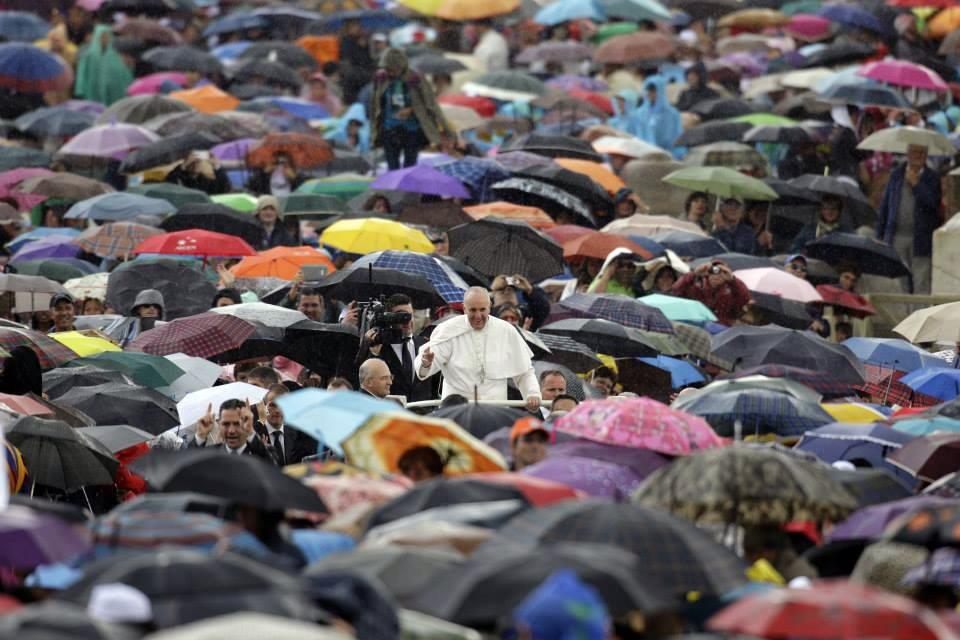


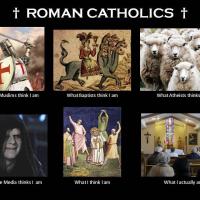



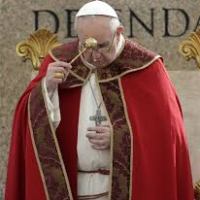

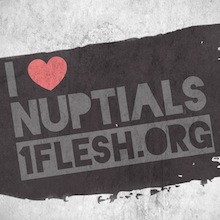

















8 kids and a business
/ July 31, 2012I had no idea of the history of the Sacrament of Confession. Thanks for your series on confession, unfortunately, as you say, forgotten, ignored and definitely underrated, but so very important for the soul. Hopefully, your series of posts will encourage even one person who has been away from the sacrament to return to it.
1catholicsalmon
/ July 31, 2012Thanks for commenting!
prasad
/ December 21, 2013what is the authority ??
1catholicsalmon
/ December 23, 2013The authorty of the Catholic Church stems from Christ himself. The Popes and Bishops in the Church can be traced to the earliest beginnings of the Church, in an unbroken line.
The Tradition of the Church stems from the Apostles, and this is what sets Catholicism apart from all other Christian denominations-the unbroken chain as started by the first Apostles.
The Sacrament of Penance, commonly called Confession, is one of the seven sacraments recognized by the Catholic Church. Catholics believe that all of the sacraments were instituted by Jesus Christ himself. In the case of Confession, that institution occurred on Easter Sunday, when Christ first appeared to the apostles after his Resurrection. Breathing on them, he said: “Receive the Holy Spirit. For those whose sins you forgive, they are forgiven; for those whose sins you retain, they are retained” (John 20:22-23).
prasad
/ December 23, 2013true. but im asking about the stages of development, what is stated by you.
1catholicsalmon
/ December 23, 2013It’s factual and is part of the history of the Churfh. I have been a practising Catholic for my whole life. I would not post anythig that was knowingly erroneous and misleading. Is there something in particular that you’re questioning?
prasad
/ December 23, 2013the same thing where to find references for the above mentioned stages?
actually I’m a currently researching about confessional history for my dissertation. Thus asked you where to find authoritative reference for the developmental stages stated above.
1catholicsalmon
/ December 23, 2013The best source you could go to for this would be the Catechism of the Catholic Church. The link is on my the left hand side of my blog.
All the best with your dissertation.
1catholicsalmon
/ December 23, 2013PS here is the direct link to the CCC: http://www.vatican.va/archive/ENG0015/_INDEX.HTM
Another valuable resource is the ‘Catholic Bible Dictionary’, written by Scott Hahn. You’re sure to lay your hands on it in any self-respecting library.
Creating Space, LLC.
/ January 9, 2014Thank you for following Creating Space In Your Life.
1catholicsalmon
/ January 9, 2014You’re welcome, your blog is inspirational.
Carl D'Agostino
/ January 23, 2014Thanks visit my cartoon blog
Creating Space, LLC.
/ February 25, 2014Wanted to let you know I taught a session on reconciliation for our RCIA a few weeks back and referenced your site. Thanks for the great content.
1catholicsalmon
/ February 26, 2014Thank you for your support.
Robin
/ April 22, 2014Thanks for this great history lesson. Loved it! I just googled John Cornwells wretched book about confession The Dark Box. I got to the sixth page of sites with no sign of a voice of reason or apologetics. Cornwell would have his readers believe that the confessional led to sexual abuses. He denies the practice of auricular confession and that it was only made mandatory in the 12th century. He further pads his position by dramatically pleading to Pope Francis to end the horrible practise of forcing children to make their first confession before making their First Holy Communion. Arrrgh! He has obviously never been to Canada where this has been the case for almost 20 years. Here the children make their first Holy Communion and are Confirmed in grade 2. As a result, we have 18 and 20 year olds who have not ever made their first confession. The gift of the deposit of faith has been tinkered with to the point of obscurity. Thanks for your efforts at correcting the persistent misinformation and ignorance. St Charles Borromeo pray for us!
1catholicsalmon
/ April 22, 2014What an interesting comment, thank you. I have not read John Cornwell at all, so I may take time to look him up…just for the sake of knowing more about his views.
Here in England the children receive their 1st Holy Communion when they are 9 years old so they are 8 and a half when they attend Reconciliation. They have the choice to be Confirmed at the age of 14. Over on this side of the pond, many young adults who have been Confirmed wander away from the Church. Is this the case too in Canada?
The thought of young adults of between 18-20 never having made their Confession or having received their 1st Communion is really worrisome and very sad. They’re missing out on close communion with the Lord and the Grace bestowed on them through the Sacraments. A bad start..and I wonder whether their spiritual journey ever gets momentum. I suppose Baptism keeps that door open.
Robin
/ April 24, 2014What I am about to say betrays my cynicism in the method, not the matter. I love my chosen Catholic faith. I call the current practice of First Holy Communion and Confirmation in Grade two “the theology of wishful thinking”. Just what is it we are confirming children as young as 7 in? To add insult to injury, these same children are told to forgo First Confession until the following year. But since their parents are themselves ignorant of their faith, they do not return the following year to ensure the children make their first confession. So when our Bishop stood one year and asked the kids what the gifts of the Holy Spirit were, there was not a single child could answer his question. It should have been otherwise.
How do we explain to children the need for salvation and redemption through the blood of Christ, when they do not grasp the reality of sin in their lives. Even if that sin is stealing an extra cookie or lying about brushing your teeth. Why are we surprised when they can completely avoid confession until well into their 20s. Yes, they have supernatural grace through baptism, but they need the booster shot that comes every time they make a good confession. And since they do not practice the discipline of confession, it is a self fulfilling prophecy in that they are less aware of the sin in their lives. They continue to sin and become even more dulled. The vicious circle plays out. And as you say, they lose interest and wander away. Their faith is not relevant to them anymore. And that is sad and worrisome to be sure!
I know this tugs a bit at the thread of this particular discussion. It is a bit off topic. Sorry for that. But confession is so critical to our life in Christ, that any attempts to down play it or put it off should be rejected.
I wish you well in reading Cornwells book. I’m not up for it. He is an ex priest and hates the Church. His attacks are predictable and typical. He has turned his back on the Sacraments and now he’s itching for company. Maybe you could write a review? I’d read that.
I am enjoying your site. God bless you in this effort.
1catholicsalmon
/ April 24, 2014Thanks for your contribution here. You mention important a and valid points about this Holy Sacrament.
In Christ